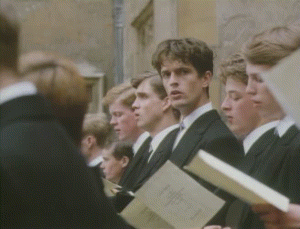The past is another country. Or is it?
Friar Barnadine: “Thou hast committed–”
Barabas: “Fornication– but that was in another country / And besides, the wench is dead.”
Christopher Marlow (The Jew of Malta)
What made people like Guy Burgess or Anthony Blunt rebel against their society, betray their country and spy for the soviet union? Was it a reaction against the seemingly inexorable rise of Fascism, or was it the rejection of a brutal class system? Did their experience of having to hide their homosexuality from a bigoted society cause them to turn against the very establishment they were supposed to be members of? I blame the father. ‘Another Country’ highlights the projection of the strict father to be found in the hypocrisy and snobbery of the English public school. Guy Burgess was at Eton. The school was run not by the Masters, but by the Gods, the only boys who were allowed to wear coloured waistcoats. And Guy, the aesthete, aspired to be elected to the Pantheon (if only to display the waistcoat).
Miranda Carter, in her biography of Anthony Blunt, claims that his miserable time at public school, fostered a subversive but also superior attitude toward British society. This potent combination – insecurity and moral superiority – fed into a belief that this chosen elite had the right to be exempt from mere conventional morality for the good of the masses.
The regime of the Gods was repressive, militaristic and essentially corrupt, a system designed to create the rulers of Empire. Guy was beautiful, louche, artistic and openly homosexual. He was confident enough to love whom he wanted; after all several of the Gods had been his lovers. And he was clever enough to be feared. But when Martineau is discovered in flagrante in the boiler room and hangs himself in shame, the Gods clamp down on homosexuality in order to contain the threat of scandal. Guy at first escapes public humiliation by threatening to expose his lovers. But as desperate as he is to become a God, he is also desperately in love with James. And this love leads him to indiscretion and exposure. So he shields James him from possible expulsion, accepts the blame and the punishment and is customarily debarred from elevation to the Pantheon.
So, was it his humiliation at school that that made Guy Burgess turn against the English class system and betray state secrets to the Russians? Was it rejection by a system he secretly admired and aspired to? Was it envy, revenge, the feeling of the outsider? Was it then, on the verge of his adult life, that he realized how much the British class system relied on outward appearance and how devastating being openly gay was for a diplomatic career? Was that the point that he allowed himself to become radicalised by his best friend Tommy Judd – an intellectually committed Communist?
Or was it in part his betrayal by his adored mother? In a tender moment with James at night in a punt on the river, he discloses how he had to release his mother, trapped in bed after his father collapsed and died while making love to her. Quite soon afterwards, she married an army officer.
Another Country portrays the road to betrayal as a personal, emotional crisis, rather than an intellectual identification. As a young man, Guy was portrayed as mischievous, sensitive, intelligent, in love, but tragically crushed by the juggernaut of the English class system? He was being bred to inflict rule and punishment in the real world by playing at Gods at school. And against this inhumanity he rebelled.
The theme was composed, as with all of us, early in Burgess’s life, and had to be worked through. Always an outsider, he ended his life, a broken, isolated, embittered man, living in a seedy apartment in Moscow with only the faded sepia prints of Eton hanging on his walls to remind him of the turning point.
‘Another Country’ made me think of my time at Taunton School. In the early sixties, the ancien regime of the English public schools still held sway; Taunton was still attempting to produce young men to run the Empire, even though that institution was all but dismantled. They still had a combined cadet force; they still do, I think. Sport, an essential component of the school curriculum, encouraged teamwork, loyalty and identification with the system. The establishment still didn’t foster original thinking and expression; it indoctrinated. At the time, I had a strong sense of duty. My parents admired that system and I felt bound by obligation to uphold it, but I never felt that emotional sense of belonging that many of my friends of that time still do. My life has been patterned by ambivalence.
For one of my school friends, Maurice, Taunton school fostered a deep sense of entitlement and rebellion. What he did at school could be contained. Now, fifty years on, he is pitted against the Justice system, the General Medical Council and the House of Lords all at the same time. But for every one damaged by the system, there were nine created by it. Sir Peter Westmacott, one time our ambassador in Paris, was one of our contemporaries at school.
‘Another Country’, starred Rupert Everett as Guy and a younger Colin Firth as Tommy Judd. It was directed by Marek Kanievska in 1984.



